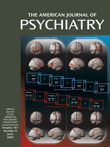On Chronic Fatigue Syndrome
To the Editor: Dr. Buchwald has made many contributions to our understanding of the highly controversial “functional somatic syndromes,” and she and Dr. Afari have offered a useful overview of chronic fatigue syndrome.
Dr. Buchwald’s own thorough research has convincingly demonstrated that neither viruses nor disturbances of the immune system are the cause of chronic fatigue syndrome, but she and Dr. Afari still seem to want to sit on the fence with their vague “heterogenous…complex…multifactorial etiology” (p. 221), a position also recently espoused by Evengard et al. (1). I wonder if that is why the authors paid no attention to the full report from the Royal College of Psychiatrists of Great Britain (2) and the shorter but well-focused review by Salit (3). Both solidly reinforced the conclusion that there is no scientific support for an organic or physical cause but much to suggest an etiology of psychological factors.
The authors acknowledged the usefulness of considering chronic fatigue syndrome as a “functional somatic syndrome.” However, it is a bit surprising that they shied away from acknowledging the almost complete unanimity that the etiology of fibromyalgia is psychological (4–7) since they are aware of the many studies that have shown considerable overlap with the functional somatic syndrome characterized by the pain labeled as “fibromyalgia.”
Researchers who only use a narrow phenomenological perspective to explain the functional somatic syndromes may become locked into the dead end of trying to correlate the functional somatic syndromes with DSM diagnostic categories. The truth is that broader psychodynamic understandings offer much more coherent and credible explanations (4, 5). Indeed, the severe limitations of the DSM categorical framework may be responsible for the current fashionable but wasteful practice of trying to establish a genetic inheritance predisposition. The notion of a genetic cause for the purely subjective pain or tiredness of fibromyalgia or chronic fatigue is almost hilarious.
My strongest reservation about the review concerns the authors’ praise and apparent endorsement of support groups. Far from being “well informed,” support groups are often ill informed and heavily biased and provide patients with misinformation. Patient advocacy groups are often vehemently antipsychiatric, and certainly in Canada, some of their members espouse a hostile and malicious attitude toward experts who disagree, not with their symptoms—we fully acknowledge those—but with their etiological theories. The encouragement they provide is often quite detrimental. It is toward a “sick victim” position, rather than toward psychological help and active physical exercise.
For all of the patients I have been asked to assess who claimed to have one or another of the functional somatic syndromes, I don’t think there has been one who has not had more than sufficient psychological reasons to have developed their symptoms.
1. Evengard B, Schacterle RS, Komaroff AL: Chronic fatigue syndrome. J Intern Med 1999; 246:455–469Crossref, Medline, Google Scholar
2. Chronic Fatigue Syndrome: Council Report 54, revised. London, Royal College of Psychiatrists, 1997Google Scholar
3. Salit IE: The chronic fatigue syndrome: a position paper. J Rheumatol 1996; 23;3:540–544Google Scholar
4. Winfield JB: Psychological determinants of fibromyalgia and related syndromes. Curr Rev Pain 2000; 4:276–286Crossref, Medline, Google Scholar
5. Berger J: The Independent Medical Examination in Psychiatry. Toronto, Butterworths/LexisNexis, 2002Google Scholar
6. Ehrlich GE: Fibromyalgia, a virtual disease. Clin Rheumatol 2003; 22:8–11Crossref, Medline, Google Scholar
7. Van Houdenhove B: Fibromyalgia: a challenge for modern medicine. Clin Rheumatol 2003; 22:1–5Crossref, Medline, Google Scholar



